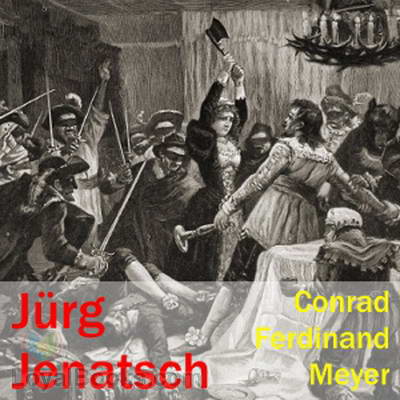
By: Conrad Ferdinand Meyer (1825-1898)
In Jürg Jenatsch, Conrad Ferdinand Meyer crafts a compelling and complex narrative that delves into themes of power, betrayal, and politics. The story of the enigmatic historical figure, Jürg Jenatsch, is brought to life with meticulous attention to detail and a vivid portrayal of the tumultuous events of 17th century Switzerland.
Meyer's prose is rich and evocative, drawing the reader into a world of intrigue and deception. The characters are vividly drawn, each with their own motivations and desires, adding depth and tension to the plot. The novel's exploration of the clash between personal ambition and loyalty to one's principles is both thought-provoking and emotionally resonant.
While the dense historical and political context may be challenging for some readers, Meyer's masterful storytelling and keen insight into human nature make Jürg Jenatsch a rewarding and engrossing read. It is a book that lingers in the mind long after the final page is turned, leaving a lasting impression of a world fraught with danger and intrigue. Book Description:
Jürg Jenatsch ist der Titel eines 1876 erschienenen historischen Romans von Conrad Ferdinand Meyer über den Bündner Pfarrer und Militärführer Georg Jenatsch. Der Roman spielt in der Zeit des Dreißigjährigen Krieges. Zu Beginn des Krieges streben die Spanier danach, Graubünden unter ihre Gewalt zu bringen um damit die strategisch wichtigen Bergpässe unter Kontrolle zu bekommen. Den Spaniern tritt der junge protestantische Pastor Jürg Jenatsch entgegen. Er ist Anführer der protestantischen Bündnern, die angetreten sind, ihre Heimat zu verteidigen. Sein Gegenspieler auf der katholischen Seite ist der Freiherr Pompejus Planta. (Zusammenfassung von Wikipedia)
|
